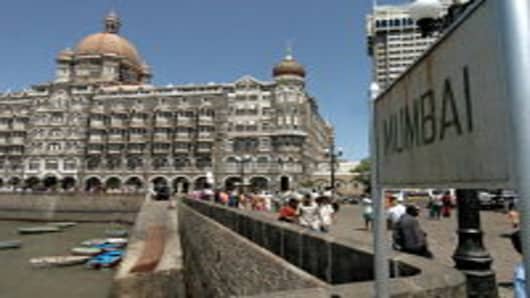For much of the corporate world, news of a fresh probe in India represents just the latest example of how multiple corruption cases, bureaucracy and ambiguous regulation is unsettling sentiment towards the country.
The most recent blow, a few weeks ago, came from a draft report from India’s national auditor alleging that oil and gas groups – including two foreign companies – had potentially cost the exchequer millions of dollars in lost revenue. The news sparked another media frenzy, a fall in energy stocks and a round of analysis about what it would all mean.
But is the current climate in India having any impact on foreign investments?
Rohit Mahajan, executive director and head of forensic services at KPMG in India, says that while petty bribery has been a feature of corporate India for some time, the scale of corruption involving both the public and private sector has stepped up in the last couple of years.
Senior government officials say the probes have created a “paralysis” in decision-making in Delhi that is affecting investment approvals.
Bankers speak of the slowdown of M&A in industries affected by scandals. The telecoms sector, for example, is ripe for consolidation and yet few are discussing deals while a high-profile probe into how 2G mobile phone spectrum was awarded in 2008 plays out.
That scandal, which last week prompted the resignation of a cabinet minister, has seen the arrest of several senior telecom officials including the former head of Telenor’s joint venture partner in India.
Sigve Brekke, head of Asian operations at the Norwegian telecoms group which bought into Unitech, an Indian company after the award of the 2G licences, says the affair has taken up a considerable amount of time and resources. Nevertheless, he says Telenor is not put off, and is taking a long-term view.
There are plenty foreign groups that have made successful forays into India. But for every Hyundai, the South Korean carmaker that is now number two in India in terms of sales, there is a case of investment hobbled by bureaucracy or environmental issues.
Posco finally got the go-ahead for a $12bn steel project in Orissa, but that took six years and the South Korean steelmaker now faces issues over whether it can acquire all the land it needs. Yet Posco takes a long-term view and says India’s high demand for steel makes it essential to future growth.
Tax issues are another growing concern. Companies including SABMiller and Vodafone have found themselves caught up in cases related to acquisitions in India.
Later this month, Vodafone heads to India’s Supreme Court to contest a $2.5bn tax bill related to the group’s $11bn acquisition of a stake in Hutchison Essar in 2007, which could have implications for further investment into the country. But having made an overall investment in India of $23bn, Vodafone says it is in for the long run.
The uncertain tax treatment of cross-border deals and the complexity of the systems leads many foreign players to believe that they are not operating on a level playing field, says Aseem Chawla, partner at legal firm Amarchand & Mangaldas & Suresh A Shroff & Co.
The tax office recently has been more aggressive, says Mr Chawla, and “seems to be taking the viewpoint that almost every cross-border transaction is a suspect full of vulnerabilities”.
“The anxiety among members of the international community is palpable,” he said.
Shashi Ruia, chairman of India’s Essar conglomerate, recently warned that India’s “ambiguous” taxation laws could hurt foreign direct investment.
In 2010, India was one of the few developing economies where FDI fell and in the first quarter of this year India attracted just $3.4bn, a 25 per cent drop on last year. But recent figures show that FDI doubled in May and analysts say that deals such as BP’s tie-up with Reliance should boost full-year numbers.
For the most part, foreign companies have weighed the risks and still find India’s long-term growth story compelling. Standard Chartered has predicted India will become the world’s third-largest economy by 2020 as the economy benefits from a booming middle class.
“India has to get its act together,” said Jagannadham Thunuguntla, chief strategist at SMC Global Securities. But he says the fact Vedanta finally won government approval for its $9.6bn acquisition of London-listed Cairn Energy’s Indian assets “sends a signal that people can make money out of India”.
Additional reporting by Song Jung-a in Seoul


